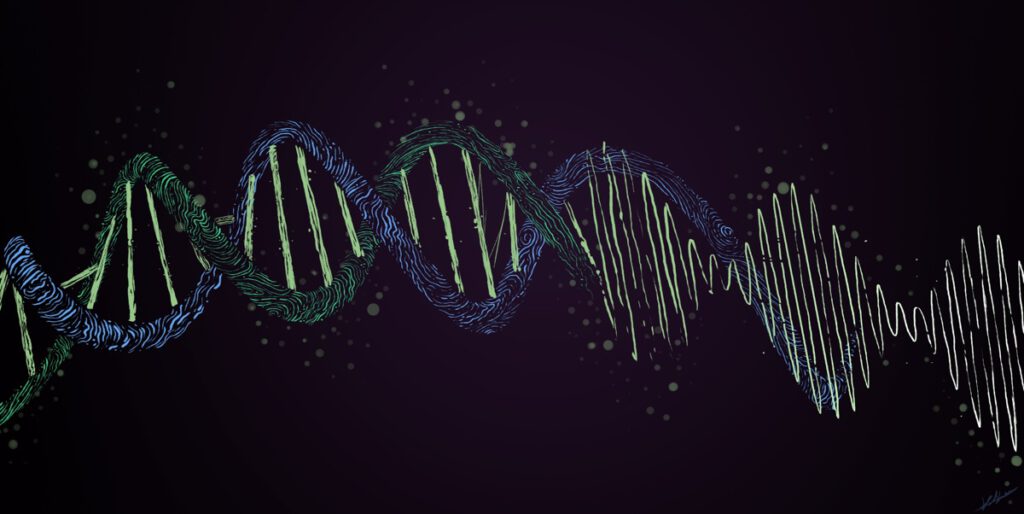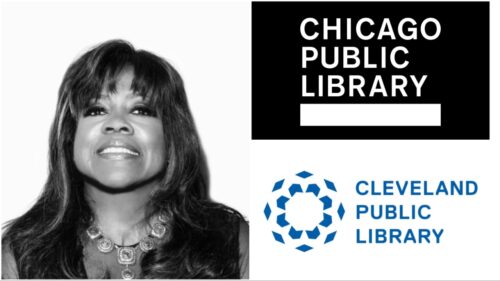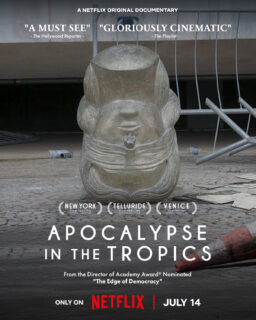Editor’s note: This is a continuation of a story Roger was working on when he passed away. This ending is one of many we received. To read Roger’s beginning to the story, from the end of which each entry picks up the thread, go here. Illustration by Krishna Bala Shenoi. This is one of five endings we’re posting this week. Vote on this week’s endings here.
Greg Salvatore writes:
“Maybe his molecules traveled to Titan,” Mason said.
“Be more likely to be Mahler’s. He wrote the Titan symphony,” Alex offered.
“Mahler’s music is much more complex,” Claire said. “This is a basic pattern, kind of like a motif in music. And you’re an idiot.”
“A leitmotif?” Alex said, smiling.
“Maybe it’s the ‘Ride of the Valkyries,’ except in this case, it’s ‘Ride of the Molecules,'” Elliot grinned.
“I don’t think either of you are contributing anything meaningful to this conversation,” Regan said, giggling.
“Okay,” Mason said. “So there’s a pattern that these organisms are giving out. A musical pattern, if you will. We still don’t know what the pattern means.”
Just then, the waitress brought by Regan’s apple crumb cake.
“Would you like anything else?” she asked them.
Alex pointed at his empty beer glass.
“I’ll have another one, too,” Mason said.
“Well, the greatest composers are masters of harmony, right?” Claire said.
“Unless you’re talking about the Second Viennese School and the atonals,” Elliot said.
“Even they created harmonies, just not the usual ones,” Claire said. “So if these molecules are in information holding patterns, like Regan said, and this pattern appeared because it was the path of least resistance, perhaps what we’re hearing is a primitive form of harmony.”
“The Musical Molecules of Titan?” Mason said.
“That title’s getting better all the time,” Alex added.
“I have another impossible theory,” Regan said, giggling. “We have DNA, right? In it is all the information needed for our development. But these molecules, they don’t have DNA. Too complex. So they have these signals that they send out instead, which blend and interact with the other signals being sent out. But each signal, in order to harmonize with the other signals, has to come from an organism that has evolved to the point where its existence would harmonize with the other molecules surrounding it, as well. The signal is not separate from the molecule—it is the molecule. Or, at least, it’s the information that makes up the molecule.”
“‘I sing of myself, /And what I assume you shall assume,/ For every atom belonging to me as good belongs to you,'” Mason quoted.
“I don’t think that’s what Whitman meant. And it’s ‘I celebrate myself,’ not ‘I sing of myself,'” Regan corrected.
“So, we should analyze these signals like they’re DNA strands,” Elliot said.
“Except that they’re musical strands,” Claire said. “And the groupings may be more important than the notes themselves.”
“And if we figure out what those strands mean….” Elliot began.
“Then we can figure out the nature of the individual molecules,” Mason finished.
“It’ll be like cracking extraterrestrial DNA,” Alex said.
They were all silent after that pronouncement. Even Regan stopping chewing the piece of crumb cake in her mouth.
“Well,” Mason said, standing up, “I guess we better get back to the lab and start analyzing this…’heavenly’ music.”
“Not us,” Alex said.
“We still have PLATO to reconstruct,” Claire said, opening the shoebox again. “But this at least proves one thing.”
“What’s that?” Mason said, as Regan shoved the last piece of apple crumb cake in her mouth and Elliot finished off his beer.
Claire smiled.
“Music is truly a universal language,” she said.











